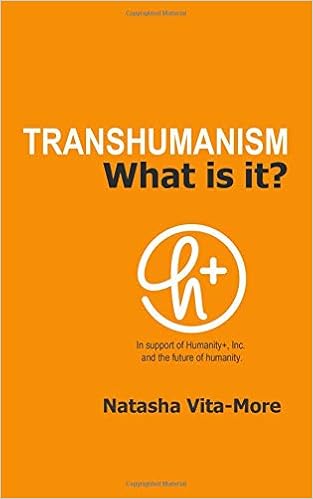
Houston Foresight alumni Natasha Vita-More published a book, “TRANSHUMANISM: What is it?” as an introduction to the transhumanist movement. While a worthy topic on its own, this post focuses on the aspects relevant to our “After Capitalism” research.
The combination of transhumanist technologies and large scale rapid automation could have major implications on our work patterns throughout life that would need to be addressed from a new political/economic/social perspective. For example: “‘haves’ and ‘have nots’….may not be an issue we will have to deal with in the future.” (because we’ll be in a post-scarcity scenario). The implication is that the solution to global poverty is not in redistribution, but in technological growth. As Peter Diamandis would put it, the post-scarcity world would not consist of “haves” and “have nots” but of “haves” and “super-haves.” [NOTE: We have grouped transhumanism in with our “Tech-Led Abundance” visions.]
This tech-driven post-scarcity world is not without issues, such as potentially uneven access to transhumanist technology. In the best-case scenario, technology would become cheap enough for all, but the global elite of wealthy superhumans may not wish to lose their advantage over the masses.
One key change is improved longevity, which would in turn drive the need for more continuous lifelong learning. As the book states “Every day 10,000 baby boomers in the US turn 65 and will until approximately 2030. How are these people going to support themselves?” If many are willing and able to continue via improvements in biotechnology they certainly may, but there’s also the issue of not just job turnover, but career turnover. If automation really does create enough jobs to maintain a high demand for skilled labor workers, it will likely require retraining on a somewhat regular basis. Periods between jobs require a greater safety net the longer and more common they become, but in a world of ever rising productivity that shouldn’t be a problem.
That’s not to say it won’t be, but there are many promising options. People could be paid for going back to school, there could be a universal basic income, national unemployment insurance, etc. If not enough new jobs are created we could return to the Keynesian promise of 15 hour work weeks, or we could at long last decouple wages from labor. Or as Kurzweil would say “Well, you’ll do something that you enjoy. That you have a passion for. Why don’t we just call that work?” — Collin Sledge




